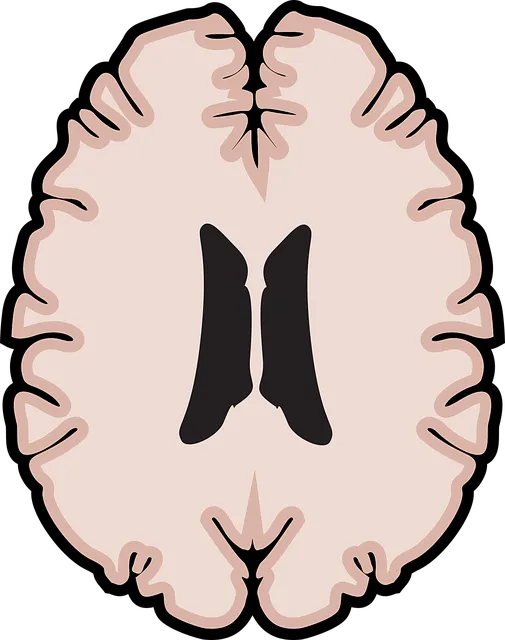Diagnosing mental illness accurately at superior Kaiser Permanente mental health facilities is challenged by stigma, trauma's impact, and provider burnout. The Superior location addresses these issues through Trauma Support Services, Social Skills Training, and comprehensive care models. By integrating therapy, medication, and community outreach, Kaiser Permanente enhances diagnosis accuracy and patient outcomes while fostering mental health awareness. Continuous quality improvement and partnerships with organizations like the ERMMOW (Emotional Regulation and Mood Management Workshops Organization) further revolutionize care delivery, making it more accessible and effective for all patients.
Mental illness diagnosis accuracy is paramount in providing effective treatment. However, challenges like complexity of symptoms, stigma, and individual variations pose significant obstacles. This article explores efforts to enhance diagnosis accuracy, drawing insights from Kaiser Permanente’s superior mental health facility model. We delve into evidence-based practices, patient-centered care, and continuous quality improvement strategies that are revolutionizing the diagnostic process, ensuring more precise and personalized mental health care.
- Understanding the Challenges: Factors Affecting Diagnosis Accuracy
- Kaiser Permanente's Approach: A Comprehensive Mental Health Facility Model
- Evidence-Based Practices: Enhancing Diagnostic Tools and Training
- Patient-Centered Care: Personalized Assessments for Improved Outcomes
- Continuous Quality Improvement: Monitoring, Research, and Community Collaboration
Understanding the Challenges: Factors Affecting Diagnosis Accuracy

Diagnosing mental illness accurately is a complex task, and many factors contribute to potential challenges within the healthcare system. At superior Kaiser Permanente mental health facilities, professionals encounter diverse barriers that can impact diagnosis precision. One significant hurdle is the pervasive mental illness stigma, which often deters individuals from seeking help or discourages healthcare providers from making comprehensive assessments. This stigma can lead to misdiagnosis or delayed treatment, especially for conditions like depression and anxiety disorders, which may present with physical symptoms.
Additionally, trauma’s lasting impact on an individual’s mental health is a critical consideration. Many patients carrying a history of trauma may exhibit complex behaviors or experience symptoms that mimic other disorders. Accessing Trauma Support Services becomes essential in these cases to understand the underlying causes, ensuring more precise diagnoses. Social Skills Training is another valuable resource, aiding in identifying subtle cues and promoting empathy during assessment processes, ultimately enhancing diagnosis accuracy.
Kaiser Permanente's Approach: A Comprehensive Mental Health Facility Model

Kaiser Permanente has pioneered a superior mental health facility model that significantly enhances diagnosis accuracy and patient care. Their comprehensive approach integrates various specialized services under one roof, enabling seamless access to treatment options such as therapy, medication management, and crisis intervention. This centralized model not only facilitates coordinated care but also promotes continuity, ensuring patients receive consistent support throughout their mental health journey.
By prioritizing Mental Health Awareness and implementing innovative Burnout Prevention Strategies for Healthcare Providers, Kaiser Permanente’s facility fosters an environment conducive to accurate diagnoses. Community Outreach Program Implementation plays a pivotal role in this process, connecting individuals who may be reluctant to seek help with the necessary resources. Through these holistic initiatives, the organization strives to improve not only individual outcomes but also to contribute to a more aware and supportive mental health landscape.
Evidence-Based Practices: Enhancing Diagnostic Tools and Training

Patient-Centered Care: Personalized Assessments for Improved Outcomes

At Kaiser Permanente mental health facilities, a shift towards patient-centered care is revolutionizing diagnosis and treatment. This personalized approach prioritizes individual needs, preferences, and cultural backgrounds, ensuring each patient receives a tailored assessment and plan. By integrating Mental Health Education Programs Design, healthcare providers gain deeper insights into patients’ lives, fostering trust and encouraging open dialogue.
Mindfulness Meditation and Burnout Prevention Strategies for Healthcare Providers are integral components of this new design. They not only enhance the well-being of mental health professionals but also enable them to offer more empathetic care. This holistic approach improves diagnosis accuracy by addressing the broader context of each patient’s life, ensuring superior outcomes and a more satisfying journey towards recovery.
Continuous Quality Improvement: Monitoring, Research, and Community Collaboration

At the superior Kaiser Permanente mental health facility, continuous quality improvement (CQI) is a cornerstone of their approach to enhancing diagnosis accuracy and patient care. This involves regular monitoring of treatment outcomes using data-driven methods. By analyzing trends and identifying areas for enhancement, the facility ensures that practices are evidence-based and aligned with the latest research in mental health. CQI also fosters collaboration between healthcare professionals, researchers, and community organizations like the Emotional Regulation and Mood Management Workshops Organization. This multidisciplinary effort enables a holistic understanding of patient needs, leading to more precise diagnoses and tailored treatment plans.
Community collaboration plays a pivotal role in this process, as it provides insights into cultural and socio-economic factors influencing mental health. Engaging with diverse communities helps tailor services to meet specific needs, thereby improving diagnosis accuracy and patient satisfaction. Through ongoing research and community partnership, the Kaiser Permanente mental health facility strives to revolutionize care delivery, making it more accessible, effective, and responsive to the emotional regulation and stress management challenges faced by its patients.
The pursuit of enhancing mental illness diagnosis accuracy is a multifaceted endeavor. By understanding the challenges that impact diagnosis, such as complex presentations and stigma, implementing comprehensive models like Kaiser Permanente’s approach, adopting evidence-based practices to improve tools and training, focusing on patient-centered care for personalized assessments, and fostering continuous quality improvement through monitoring, research, and community collaboration, we can strive towards superior mental health outcomes. These efforts collectively hold the key to transforming lives and communities.






